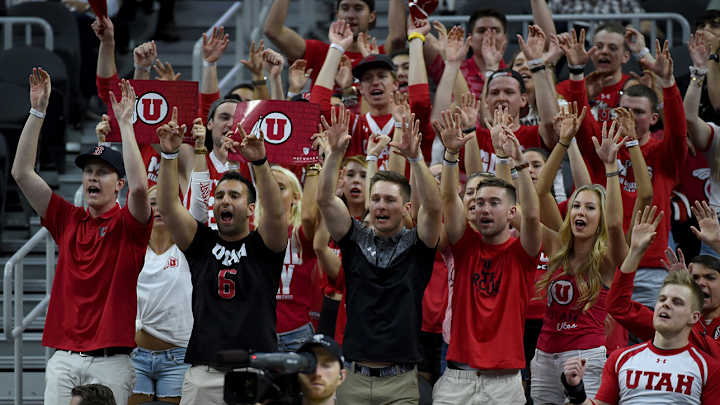University of Utah becomes first Power Five school to offer varsity esports

The University of Utah became the first Power Five school to start a varsity esports program, one that will initially offer partial scholarships for competitive video gaming.
Angela Klingsieck, who is the Executive Director and co-founder of Utah’s student esports club team Crimson Gaming, recently said she hopes other schools embrace gaming. It is currently a scholarship sport at roughly a dozen schools such as Robert Morris University (Illinois), Miami University (Ohio) and University of California-Irvine.
“There’s a lot of bravery in this initiative because it takes a lot to stick your neck out there and be the first,” Klingsieck told the Salt Lake Tribune about Utah being the first Power Five school to have varsity esports.
In the fall of 2013, she initially founded the gaming organization, which was more of social and fan club tied around online battle game League of Legends. Now, the 600-plus member club formally competes nationally while also keeping to true to its roots around more casual competitions.
It's been a hell of a couple of days pic.twitter.com/HwwiDKFF5h
— AJ Dimick (@Daventry1701) April 6, 2017
Of the 191 million global esports enthusiasts in 2016, just 29 percent are women and girls, with nearly half of that number in the 21-35 age range, according to an esports report by research firm Newzoo. With Klingsieck leading the charge out West, perhaps it will spark women at the collegiate and high school levels to become active participants in esports, especially in leadership positions.
Competition for Crimson Gaming will begin in the 2017 fall semester as the program will initially compete in League of Legends but will eventually expand to four games.
“We’ve done a lot of groundwork to make gaming popular here and a big part of the campus presence,” said Director of Operations for Crimson Gaming A.J. Dimick, who told the Salt Lake Tribune that the ultimate goal is to have 30-plus student-athletes on scholarship.
Additionally, Dimick also said he hopes that with Utah launching the varsity program, it’ll “push some people over the edge” to formalize collegiate esports and develop some type of governance which is seen with other sports like football, basketball and soccer, among others, at the Division I level.
